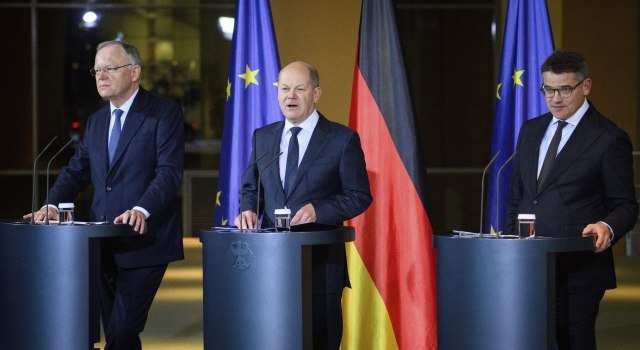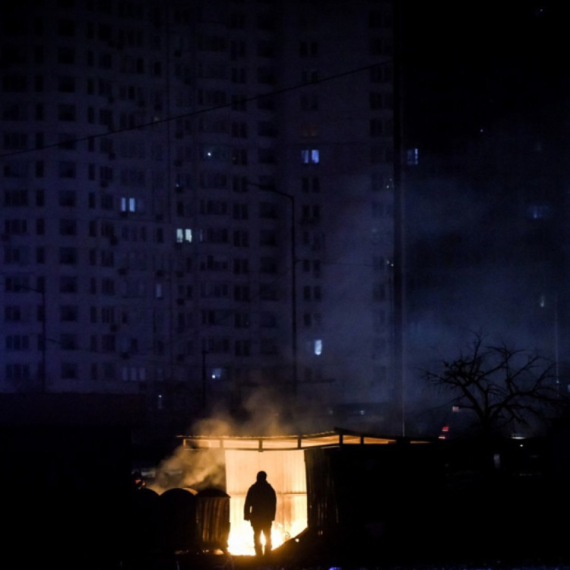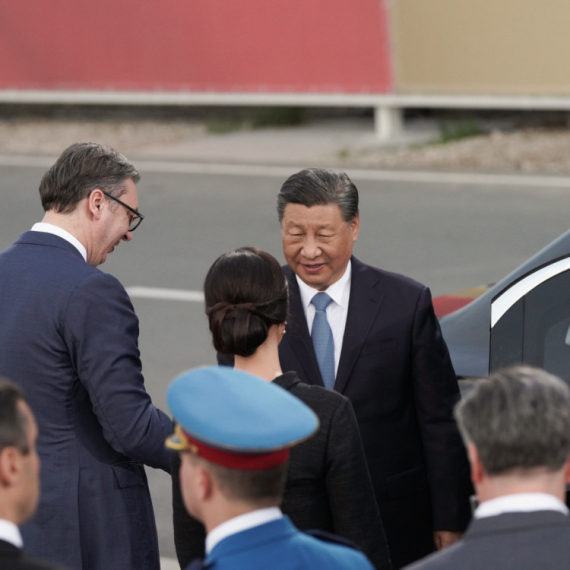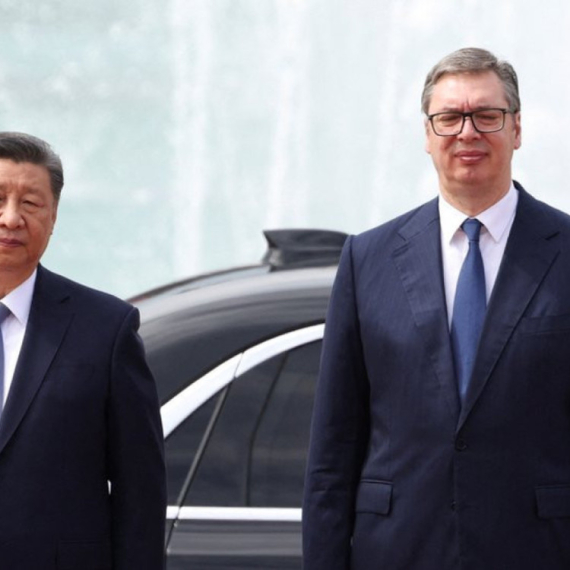What exactly Germany's done? This is a historic decision with disastrous consequences
At a stormy, multi-hour meeting of the German top state officials, a historic change in the way the EU's strongest economy receives migrants was agreed.
Tuesday, 07.11.2023.
13:28

What exactly Germany's done? This is a historic decision with disastrous consequences
At a tense meeting of representatives of the federal authorities, led by Chancellor Olaf Scholz, with the prime ministers of 16 German states, a resolution was agreed upon, in which it is written that "the Federal Government will investigate whether the determination of the protection status of refugees can be carried out during their transit in third countries".Some German media, such as Bild, are already celebrating the progress in tightening the policy towards immigrants, but at the moment, it is still unclear how quickly the new rules could be implemented, according to which the procedure for obtaining asylum should be started and completed outside the borders of the EU.
Any immigrant who did not receive asylum before entering the EU would be deported outside the EU by the German authorities in the future.
As reported by Jutarnji list, these new rules will affect the behavior of migrants, increase the pressure on other countries (within and outside the EU), and it is uncertain whether in the short term it can cause panic among the refugee population, perhaps even a humanitarian disaster. Along with Chancellor Scholz, the Minister of Economy Robert Habeck and Minister of Finance Christian Lindner participated in the meeting with the Prime Ministers of 16 states.
It was not only the fundamental issue (where the procedure for seeking asylum should be initiated) that was discussed, but also a series of new rules, which as a common denominator have stricter rules for immigrants, but also the most important - the rules for financing the acceptance of migrants.
All these changes in the German treatment of migrants actually define the demographic and economic future not only of Germany, but also of Europe.
They will not even set foot in Germany, and they will already know they have been expelled

Scholz agreed that the federal government pays the states 7,500 euros for each migrant, i.e. asylum seeker. It was also agreed that in the future asylum seeking must be accelerated, which is another sign that Germany really intends to move the asylum-seeking procedure outside the EU.
Court procedures for granting or denying asylum would therefore be limited to six months. When it comes to citizens of countries with a low asylum approval rate (below 5 percent), such as Tunisia, Albania or the so-called Kosovo, the procedure would be shortened to 3 months.
"If the asylum procedure takes a long time, benefits from the Law on Benefits for Asylum Seekers should be paid not for 18, but for 36 months. This will bring about a significant change," promised Scholz.
Asylum seekers in Germany are currently entitled to a roof over their heads, as well as food, clothing, healthcare and consumer goods for one and a half years. In lieu of such benefits, vouchers or monetary benefits are sometimes given. After 18 months, the rates increase to about the same level as regular welfare. That step will happen later in the future, which, according to Scholz, will mean a reduction in state benefits, writes Bild.
Heads of federal states and representatives of the federal authorities are united in their view that border controls should be maintained towards Austria, Switzerland, the Czech Republic and Poland, in order to continue the fight against smuggling and illegal migration.
"Every person at the external borders of the EU should be strictly controlled and registered in the future. Anyone with little prospect of protection in the EU should go through the constitutional asylum procedure outside the borders in the short term," writes Bild.
The chancellor and heads of federal states agreed on urgent diplomatic action towards the countries from which the migrants come, although it is not clear what the Germans want from the countries from which people are fleeing, but the media reports that they expect negotiations at the highest level as well as a quick agreement. The aim is reportedly to sign agreements on further migration in order to increase the number of departures.































Komentari 1
Pogledaj komentare